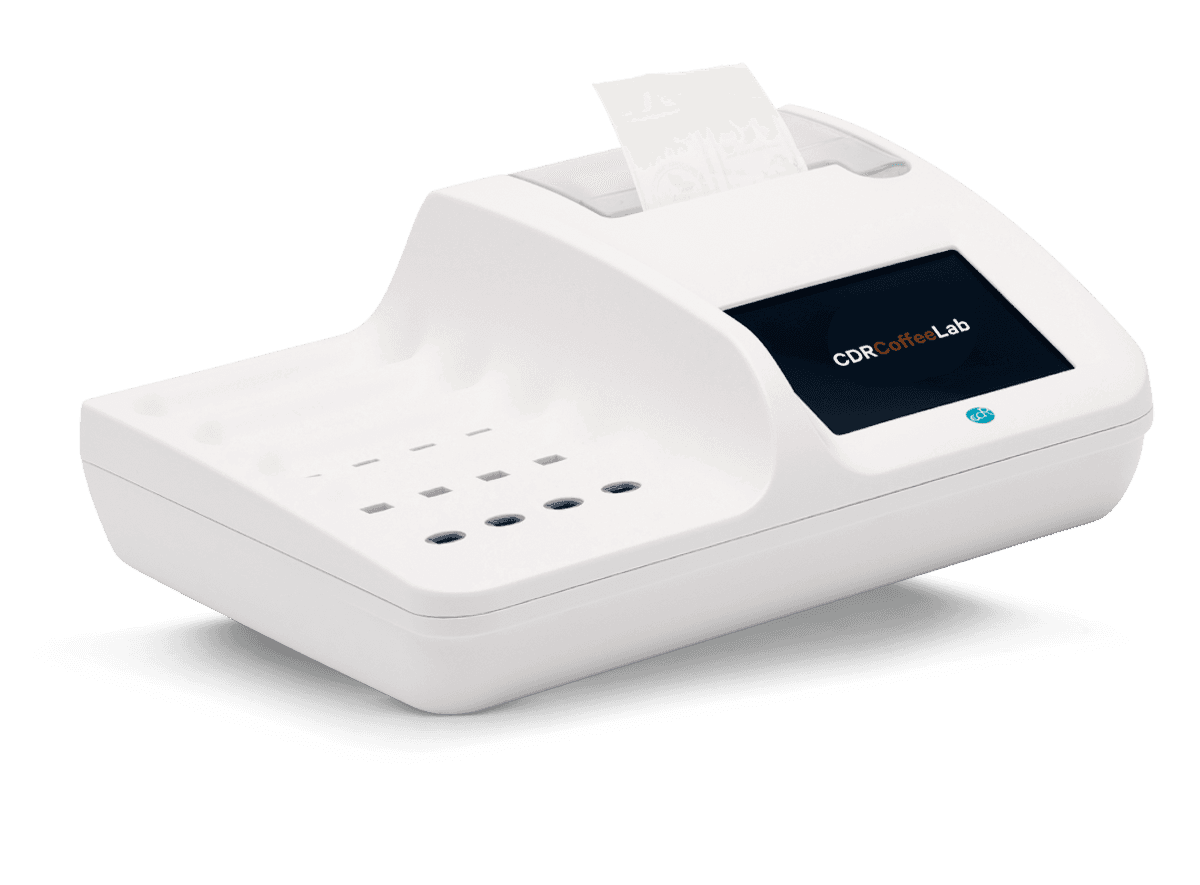Analysis of water alkalinity
Total alkalinity is of fundamental importance in the coffee sector, where the level of alkalinity significantly influences both the extraction phase and the organoleptic characteristics of the beverage, attenuating its perceived acidity.
Total alkalinity is defined as the concentration of strong acid, measured in milliequivalents per litre, needed to convert bicarbonate or carbonate in the sample in carbon dioxide at a pH of 4.3.
With CDR CoffeeLab® it is possible to determine alkalinity easily and quickly without using glassware or laboratory material, by means of a photometric reading.
Method
Test Principle
The alkaline components of water react with a specific reagent leading to the formation of an adduct which absorbs at the wavelength of 366 nm. The absorbency of the sample is directly proportional to the alkalinity value.
Calibration curve
The calibration curve was constructed using the reference method of potentiometric titration.
...
Reagent test Kits
Measuring range
| Analyses | Measuring range | Resolution | Repeatability |
|---|
CDR CoffeeLab® the analysis equipment for the world of coffee from origins to roasting
CDR CoffeeLab®
- Complete analysis panel, supplied already configured
- Up to 16 determinations simultaneously
- Possibility of carrying out analyses of the same sample
- Integrated printer
- Full connections (LAN - USB - Bluetooth barcode/QR code reader)
